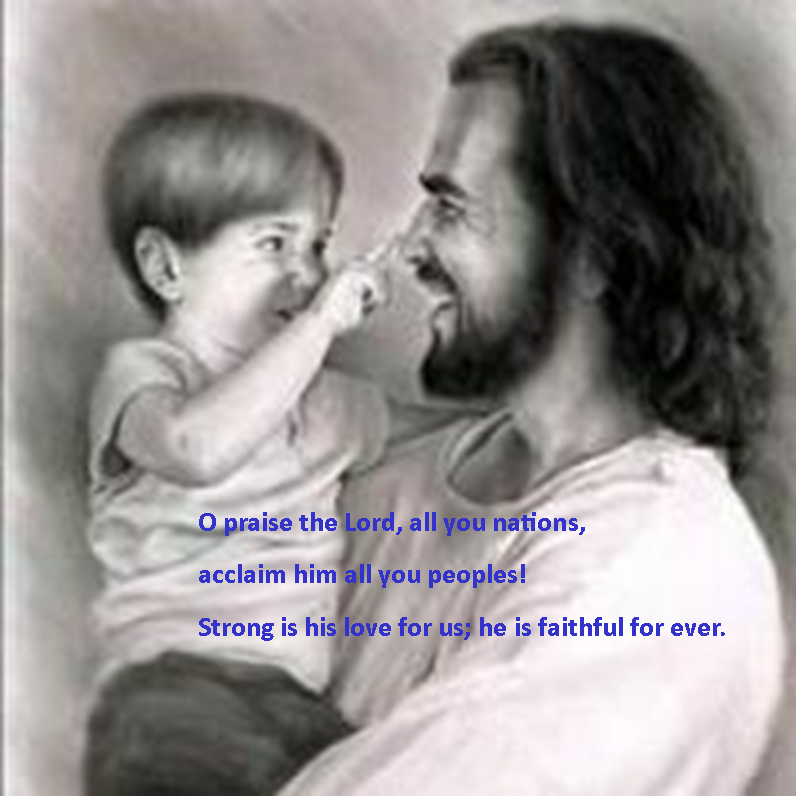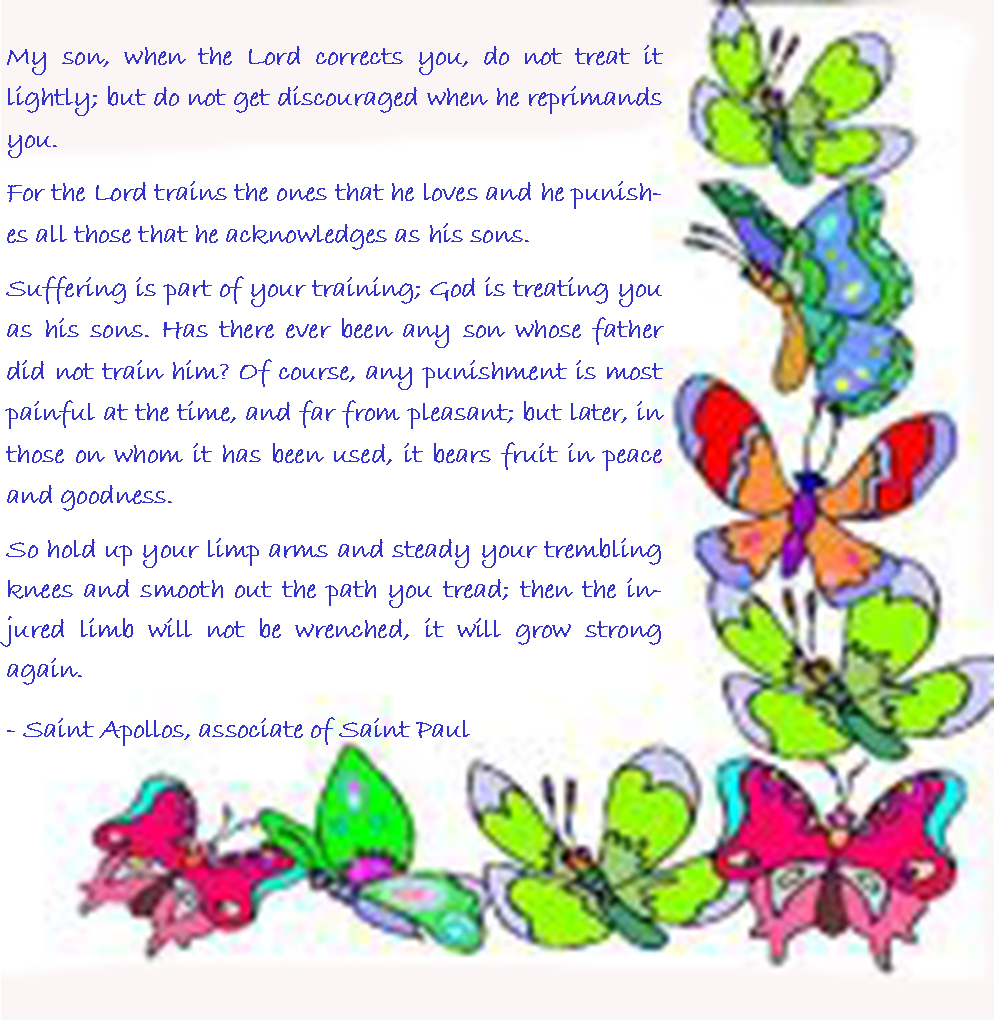|
45 |

|
Extracted from the prophet Isaiah 66:18-21: The Lord says this: I am coming to gather the nations of every language. They shall come to witness my glory. I will give them a sign and send some of their survivors to the nations: to Tarshish, Put, Lud, Moshech, Rosh, Tubal, and Javan, to the distant islands that have never heard of me or seen my glory. They will proclaim my glory to the nations. As an offering to the Lord they will bring all your brothers, on horses, in chariots, in litters, on mules, on dromedaries, from all the nations to my holy mountain in Jerusalem, says the Lord, like Israelites bringing oblations in clean vessels to the Temple of the Lord. And of some of them I will make priests and Levites, says the Lord. |

|
Extracted from Psalm 117:1-2: Go out to the whole world; proclaim the Good News. Or Alleluia! O praise the Lord, all you nations, acclaim him all you peoples! Strong is his love for us; he is faithful for ever. |

|
Extracted from the Sermon - Hebrews 12:5-7,11-13: Have you forgotten that encouraging text in which you are addressed as sons? My son, when the Lord corrects you, do not treat it lightly; but do not get discouraged when he reprimands you. For the Lord trains the ones that he loves and he punishes all those that he acknowledges as his sons. Suffering is part of your training; God is treating you as his sons. Has there ever been any son whose father did not train him? Of course, any punishment is most painful at the time, and far from pleasant; but later, in those on whom it has been used, it bears fruit in peace and goodness. So hold up your limp arms and steady your trembling knees and smooth out the path you tread; then the injured limb will not be wrenched, it will grow strong again. |

|
Extracted from the holy Gospel according to Luke 13:22-30: Through towns and villages Jesus went teaching, making his way to Jerusalem. Someone said to him, ‘Sir, will there be only a few saved?’ He said to them, ‘Try your best to enter by the narrow door, because, I tell you, many will try to enter and will not succeed. ‘Once the master of the house has got up and locked the door, you may find yourself knocking on the door, saying, “Lord, open to us” but he will answer, “I do not know where you come from.” Then you will find yourself saying, “We once ate and drank in your company; you taught in our streets” but he will reply, “I do not know where you come from. Away from me, all you wicked men!” ‘Then there will be weeping and grinding of teeth, when you see Abraham and Isaac and Jacob and all the prophets in the kingdom of God, and yourselves turned outside. And men from east and west, from north and south, will come to take their places at the feast in the kingdom of God. ‘Yes, there are those now last who will be first, and those now first who will be last.’ Sharing:
It was the 21st Sunday in Ordinary Time on 25 August 2013. Here are the Readings that were read in the Eucharistic Celebrations all over the world on the same day (see above): 1st Reading: Isaiah 66:18-21, Responsorial: Psalm 117:1-2, 2nd Reading: Hebrews 12:5-7,11-13 & Gospel Reading: Luke 13:22-30.
We have extracted the Homilies of Blessed Pope John Paul II, Pope Benedict XVI & Pope Francis I based on the aforesaid Readings to share with you, so that you could similarly be encouraged: |

|
JOHN PAUL II ANGELUS Sunday 26 August 2001
Dear Brothers and Sisters,
1. "I come to gather nations of every language; they shall come and see my glory" (Isaiah 66,18). The word of the prophet Isaiah, which we hear in the liturgy today, makes me think of the important international meeting which will be held at Durban, in South Africa, 31 August to 7 September. It is the UN World Conference Against Racial Discrimination. There, once again, the Church will raise a strong voice to safeguard the fundamental rights of man, rooted in his dignity of being created in the image and likeness of God. The Pontifical Council for Justice and Peace has prepared, with an updated introduction, a new edition of the document published at my request in 1988, entitled The Church in Face of Racism: For a More Fraternal Society, in order to present to the faithful and to the international community the thought of the Holy See on such a problem.
Unfortunately it emerges in ever new and unexpected ways, offending and degrading the human family. Racism is a sin that constitutes a serious offence against God. The Second Vatican Council reminds us that "We cannot truly pray to God the Father of all if we treat any people in other than brotherly fashion, for all men are created in the image of God.... Therefore, the Church reproves, as foreign to the will of Christ, any discrimination against people or any persecution of them on the basis of their race, colour, social condition or religion" (Nostra aetate, n. 5).
Particularly, let us invoke Our Lady, so that everywhere the culture of dialogue, of acceptance, and of respect for every human being may be advanced. To her we entrust the coming Conference of Durban which we hope will reinforce the common will to build a freer and more solidary society.
----------------------------------------------------------------------------
After the Angelus, the Holy Father greeted the pilgrims in French, English, German, Spanish and Portuguese. To the English visitors he said:
I gladly welcome the new students of the Pontifical North American College who are beginning their studies for the priesthood in the Eternal City. May your years in Rome help you to deepen your faith and your love of the Church. Greetings also to the pilgrimage group from Villanova University. Upon all the English-speaking pilgrims and visitors present today at this Angelus prayer, I cordially invoke God's blessings of joy and peace.
Acknowledgment: We thank the Vatican Publisher for allowing us to publish the Homily of Blessed Pope John Paul II, so that it could be accessed by more people all over the world; as a source of God’s encouragements to all of us.
1 September 2013 |